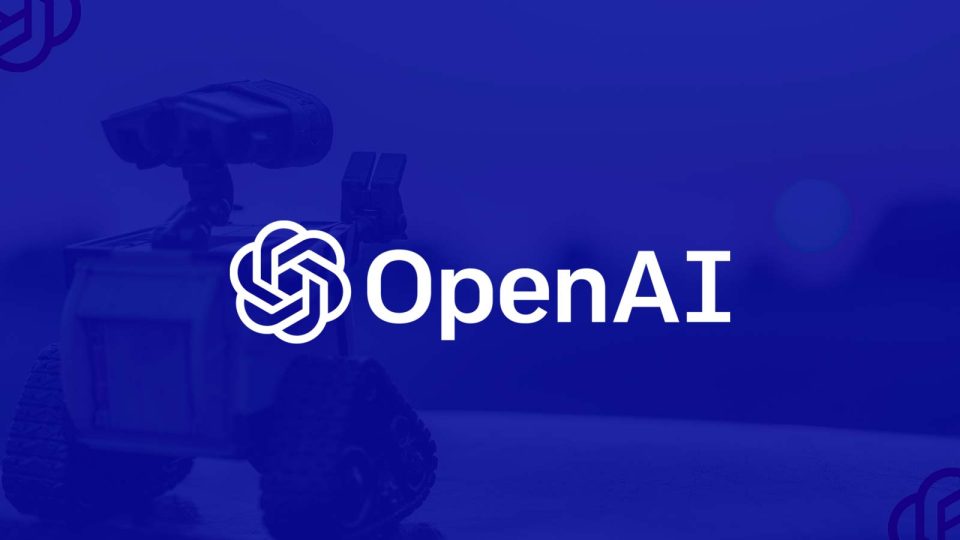OpenAI unveils enhanced capabilities and reduced prices at the OpenAI DevDay Conference.
OpenAI has announced the launch of the much-anticipated GPT-4 Turbo, marking a significant milestone in the world of artificial intelligence. This advanced model is characterized by its extraordinary 128K context window, promising to redefine the AI landscape. With its initial release in March, GPT-4 Turbo’s enhanced power, cost-efficiency, and expanded knowledge, now encompassing developments up to April 2023, have created a seismic shift. This achievement is further accentuated by the optimized performance, resulting in a remarkable 3x reduction in price for input tokens and a 2x decrease for output tokens in comparison to GPT-4. This groundbreaking development sets the stage for the availability of GPT-4 Turbo to developers, with plans for a stable production-ready model to follow in the coming weeks.
 Read More: CIO Influence Interview with Antoine Jebara, Co-Founder and GM, MSP Products at JumpCloud
Read More: CIO Influence Interview with Antoine Jebara, Co-Founder and GM, MSP Products at JumpCloud
Enhancements in AI Functionality
Function with enhancements can now enable users to request multiple actions in a single message, streamlining interactions and enhancing user experience.
GPT-4 Turbo sets a new standard for instruction following, excelling in tasks that require precise adherence to guidelines. The introduction of JSON mode ensures that the model consistently generates valid JSON output, offering flexibility to developers working outside of function calling.
Another crucial innovation is the introduction of reproducible outputs through a new seed parameter. This addition empowers developers to control and reproduce the model’s responses, enhancing testing and fine-tuning processes. Further enriching the offering, OpenAI plans to unveil log probabilities for output tokens, bolstering features like autocomplete in search experiences.
Updated GPT-3.5 Turbo and Introduction of Assistants API
OpenAI’s commitment to advancement also extends to the GPT-3.5 Turbo, now offering a 16K context window by default. This version demonstrates a 38% improvement in tasks like generating JSON, XML, and YAML, cementing its position as a frontrunner in AI capabilities.
Introducing the Assistants API marks a significant step towards fostering agent-like experiences within applications. Developers can now leverage this API for a range of use cases, from natural language-based data analysis to coding assistance and beyond.
With functions like Code Interpreter, Retrieval, and the capability for function calling, developers gain an array of tools to simplify AI application development. OpenAI’s persistence in refining AI technology is evident with the introduction of persistent and infinitely long threads, overcoming context window constraints and streamlining thread state management.
Read More: CIO Influence Interview with Antoine Jebara, Co-Founder and GM, MSP Products at JumpCloud
New Modalities and Lower Pricing
GPT-4 Turbo’s integration of vision into the Chat Completions API unlocks a myriad of possibilities, including image captions, detailed image analysis, and document interpretation. OpenAI’s visionary technology, used by Be My Eyes to aid the visually impaired, is set to transform AI applications.
Developers can now integrate DALL·E 3, known for its creativity and image generation capabilities, into their applications via the Images API. This facilitates innovative applications in diverse industries, from design to marketing.
The Text-to-speech (TTS) API adds a human touch to applications, allowing the generation of human-quality speech from text. With options for voice selection and quality optimization, it caters to a wide range of use cases.
OpenAI’s commitment to innovation is further highlighted by its fine-tuning program for GPT-4, aimed at achieving higher performance and safety. Additionally, the introduction of Custom Models caters to organizations requiring extensive customization for AI training.
Lower Prices and Copyright Shield
OpenAI is significantly reducing prices across its platform, offering developers cost savings per 1,000 tokens in various ways:
- GPT-4 Turbo input tokens are now priced at just $0.01, making them three times cheaper than GPT-4, while output tokens are available at $0.03, marking a 2-fold reduction.
- For GPT-3.5 Turbo, input tokens see a remarkable 3x price drop from the previous 16K model, now priced at $0.001, and output tokens are available at $0.002, representing a 2x cost reduction.
- Developers who are using GPT-3.5 Turbo 4K will benefit from a significant 33% input token cost reduction, now available at $0.001. These new price levels apply exclusively to the newly introduced GPT-3.5 Turbo model.
- Fine-tuned GPT-3.5 Turbo 4K model input tokens have been dramatically reduced by four times, now priced at $0.003, and output tokens see a 2.7x cost decrease, available at $0.006. Moreover, the pricing structure for fine-tuning now supports 16K context at the same cost as 4K with the new GPT-3.5 Turbo model. These price reductions are also applicable to fine-tuned gpt-3.5-turbo-0613 models.
OpenAI is more focused on ensuring accessibility to its AI models, with significant reductions in pricing for various models. These price cuts make AI more cost-effective, enabling a broader audience to harness its capabilities.
As part of a continued dedication to customer protection, OpenAI introduces Copyright Shield. This feature is designed to safeguard customers facing legal claims related to copyright infringement, showcasing OpenAI’s commitment to supporting its user community.
Whisper v3 and Consistency Decoder
Whisper large-v3, the next version of OpenAI’s open-source automatic speech recognition model, offers improved performance across multiple languages. This innovation is poised to enhance ASR capabilities, offering greater accuracy and efficiency.
OpenAI’s commitment to open source extends to the Consistency Decoder, a vital enhancement for the Stable Diffusion VAE decoder. It brings significant improvements in the rendering of text, faces, and straight lines within images.
With these announcements OpenAI reaffirms its role as a leading force in the AI industry, pushing the boundaries of technology and setting new standards for AI innovation. Developers, organizations, and enthusiasts can look forward to more accessible and enhanced AI tools and solutions as OpenAI continues to propel the AI revolution forward.
Read More: CIO Influence Interview with Russ Ernst, Chief Technology Officer at Blancco
[To share your insights with us, please write to sghosh@martechseries.com]


